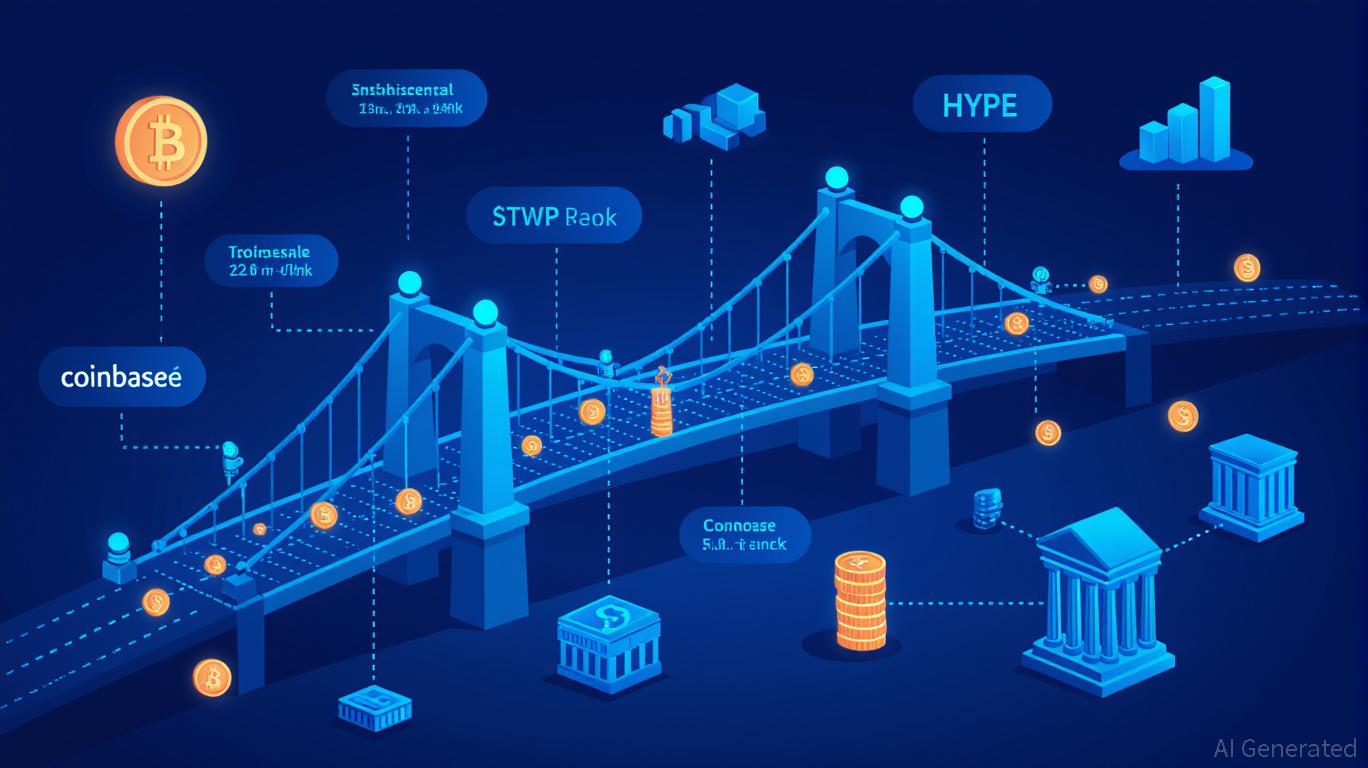Gavin Wood Supports Acurast’s Decentralized Computing Revolution Driven by Smartphones
- Acurast, a smartphone-based decentralized computing project, secured $11M in funding led by Ethereum co-founder Gavin Wood and others. - The platform launched its mainnet on November 17, aiming to transform 150,000 smartphones into secure compute nodes for confidential tasks. - By leveraging hardware-backed security and eliminating intermediaries, Acurast challenges traditional data centers while addressing privacy and environmental concerns. - Despite scalability challenges, the project's 494 million pr
Acurast, a decentralized confidential computing initiative that utilizes smartphones, has secured $11 million in a recent funding round led by
According to founder Alessandro De Carli, Acurast’s concept is based on the idea that billions of smartphones represent “the most thoroughly tested hardware worldwide.” By enabling confidential and verifiable computation on personal devices, the project aims to cut costs and remove middlemen from the data processing chain.

Acurast’s security model is built on hardware-secured key pairs and attestation mechanisms to guarantee tamper-proof execution. While the development team acknowledges the inherent difficulties in ensuring confidentiality on devices they do not control, they contend that their approach reduces risks through comprehensive software verification. De Carli compared these safeguards to those used by banking applications to block unauthorized access, though Acurast’s methods are specifically adapted for mobile environments
This funding round highlights the increasing momentum behind decentralized computing, a field that could make AI and other demanding applications more accessible. Acurast’s strategy reflects a broader movement in distributed ledger technology (DLT), where edge devices are being tapped for computational power. By transforming smartphones—a widespread but often idle resource—into secure computing units, the project seeks to lower entry barriers and address the environmental impact of energy-intensive data centers.
Although there are doubts about whether consumer devices can reliably handle confidential computing, Acurast’s early results point to a promising direction. The network’s current adoption and transaction figures serve as evidence of its potential, though questions about scalability and enduring security remain. Backers like Wood, a leading voice in blockchain, appear to recognize the promise in Acurast’s innovative approach to democratizing hardware and building decentralized infrastructure.
With the mainnet launch on the horizon, Acurast must balance technical reliability with user growth. If successful, the project could redefine how industries manage data privacy and allocate computational resources, especially where trustless execution is essential. For now, the $11 million investment and support from notable investors reflect strong belief in Acurast’s mission to make smartphones the foundation of a decentralized computing network.
Disclaimer: The content of this article solely reflects the author's opinion and does not represent the platform in any capacity. This article is not intended to serve as a reference for making investment decisions.
You may also like
Bitcoin News Today: Bitcoin’s HODL barrier encounters a challenge reminiscent of FTX as liquidations reach $1.1 billion
- Bitcoin tests $95k HODL wall amid $1.1B liquidations, echoing 2022 FTX crash volatility with $44.29M largest single loss. - Technical indicators show oversold RSI and potential death cross rebound, with analysts predicting $95k-$145k range for near-term reversal. - ETF flows reveal $524M Bitcoin inflow vs $1.07B Ethereum outflow, highlighting shifting institutional sentiment amid macro uncertainty. - U.S. regulatory progress through GENIUS/CLARITY Acts aims to clarify SEC-CFTC oversight, potentially boos

XRP News Today: XRP ETF Breaks Inflow Records While Bitcoin ETFs See $866M in Outflows
- Canary Capital's XRPC ETF shattered 2025 records with $245M inflows and $58.6M trading volume on debut, outperforming all other ETFs. - SEC-approved in-kind creation model enabled XRP token exchanges for shares, driving inflows exceeding real-time trading data. - XRPC surpassed Bitcoin ETFs like BlackRock's IBIT , fueled by XRP's retail following and post-Ripple regulatory wins. - XRP stabilized near $2.30 despite 8% 24-hour drop, while Bitcoin ETFs saw $866M outflows amid broader market weakness. - Regu
Ethereum Updates: India's Web3 Expansion—Digital Advertising, E-Commerce, and Blockchain Unite at IBW2025
- Bengaluru hosts IBW2025, India's largest Web3 conference, reinforcing its global digital innovation hub status. - India's digital ads show resilience: desktop web viewability (66%) exceeds global (63%) and APAC (61%) averages. - Meesho's asset-light e-commerce model targets 20% CAGR growth, aligning with Web3's decentralized infrastructure principles. - Intchains expands into Ethereum/PoS platforms, leveraging ETH holdings for yield while Kneat.com reports 33% YoY revenue growth. - Converging digital ads

Hyperliquid's Growing Influence in Crypto Trading: The Impact of Institutional Engagement on DeFi Evolution
- Hyperliquid drives DeFi mainstream adoption via institutional partnerships and a $2.15B TVL, including a HYPE token ETF application by 21Shares. - Regulatory compliance through zk-KYC and smart contract audits aligns with SEC/CFTC frameworks, accelerating institutional trust in DeFi protocols. - Zero-gas fee Layer 1 blockchain and $3T+ trading volumes position Hyperliquid as a scalable bridge between decentralized infrastructure and institutional capital. - Leadership transitions and 160% vault APYs high
